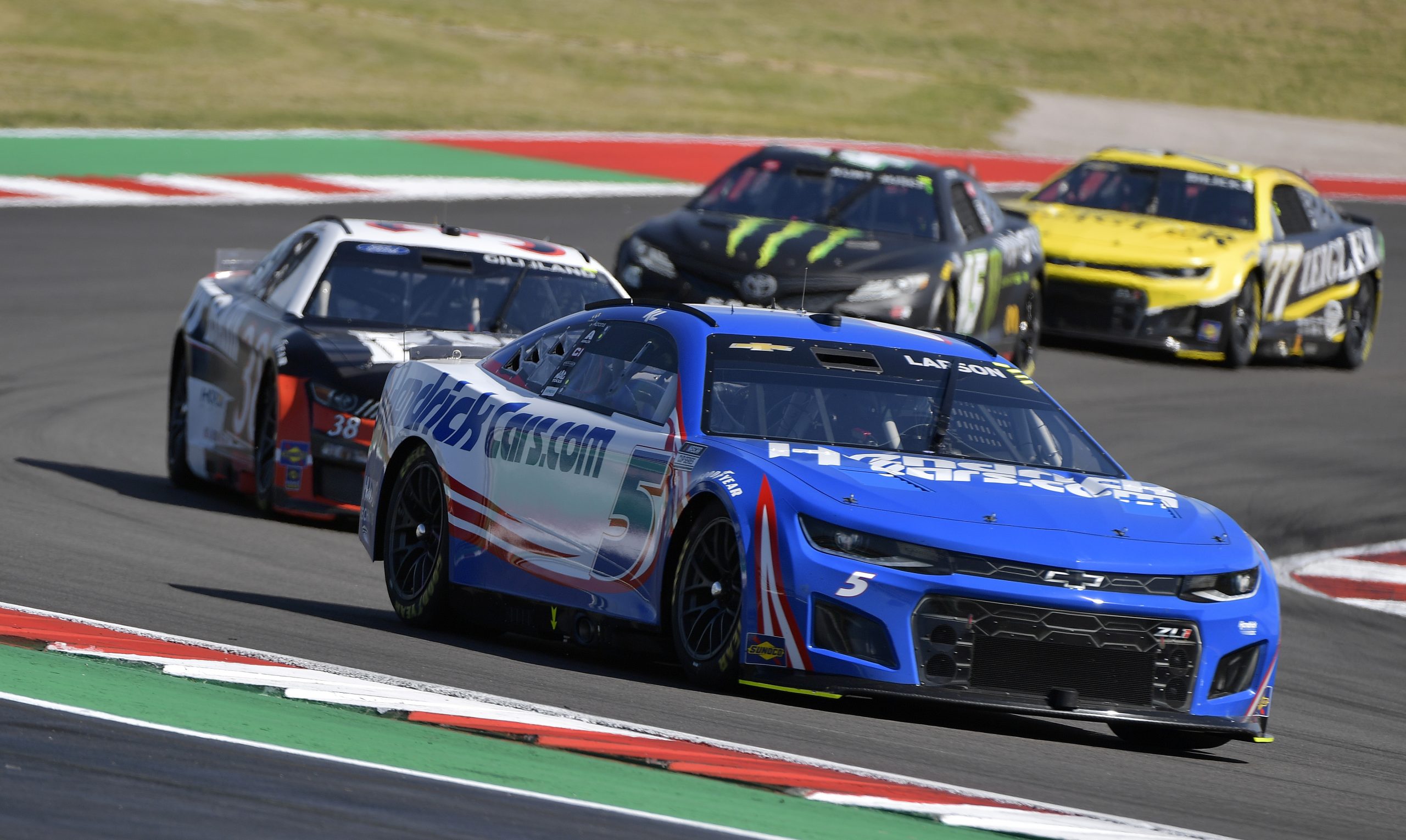If Hollywood ever gets around to rebooting (as they’re wont to do) the 1990 Tom Cruise NASCAR flick “Days of Thunder,” will the new version be called “Days of Moderately Loud High-Pitched Buzzing Noises?” Or maybe just “Days of Silence?”
If they wait long enough, they may have to. According to reports, the stock-car sanctioning body is considering the role electrification of cars will play going forward, with officials floating at least an “exhibition series” featuring EVs.
(The Western Journal has documented how, despite the green reputation the cars have, they’re not as environmentally friendly as they’re made out to be — and they’re not exactly cheap to fill, either. We’ll keep bringing America these inconvenient truths that the mainstream media won’t. You can help us by subscribing.)
Earlier this month, newly installed NASCAR chief operating officer Steve O’Donnell told reporters they were “exploring some opportunities” to run an all-electric series.
According to NBC Sports, he said that the three manufacturers that participate in NASCAR — Chevrolet, Ford and Toyota — had expressed interest in seeing electric cars in stock car racing.
“We are exploring some opportunities around an exhibition series in that space,” O’Donnell said.
“And as everyone knows, there’s a huge push across all of our [original equipment manufacturer] partners, and even potentially new OEM partners. So it’s important for us to explore that space. I think there’s a lot of interest from our current partners to be part of that.”
As for going fully electric, NBC Sports reported he “noted NASCAR has no set timeline toward going fully electric,” but instead wants electric cars to coexist.
“We look at NASCAR as a place where, in an ideal world, we’ll be all things to all people,” O’Donnell said.
“So if you went to a NASCAR event weekend, you could see whatever type of technologies you wanted throughout a race weekend.”
However, he also addressed what will be the key issue with electrifying NASCAR: noise, which electric cars don’t really create.
“But for us, the race has to be entertaining,” O’Donnell said. “Our fans, they love noise. They love the sound, the feel of racing.
“So if we’re going to get into the electric space, I promise you, it will be entertaining, and it’ll be something that fits into our portfolio and something our fans will be proud of,” he added.
As an auto racing fan, I can tell you that’s not going to be an easy solution. Sure, all-electric racing may have some novelty value. Formula E — which is sanctioned by the FIA, the body which also sanctions Formula One — has attracted some interest.
However, races for Formula E usually take place on small, claustrophobic circuits in major metropolitan areas — as opposed to normal F1 circuits — for a reason: The cars are markedly slower and the races would be boring. Faster cars are coming in 2023, as Motorsport.com noted, but they’ll still be markedly slower than their F1 counterparts.
And that buzz. For the love of Pete, the buzz. It’s like being trapped inside your computer fan. Perhaps this interests some race fans, but one should also consider that the reintroduction of turbos and increased reliance on hybrid systems annoyed F1 fans when the rules changed in 2014 due to the reduction in engine sound; that annoyance remains to this day. In fact, part of the sport’s revamped engine rules involved making the cars louder.
Keep in mind that NASCAR is considering moving to a hybrid system, too; last year, NASCAR president Steve Phelps said he “would be surprised if a new OEM came in without some type of electrification.”
“I’m not talking about all-electric. I’m talking about a hybrid system,” he said. “I think it’s something, obviously something that we’re exploring now with our existing three OEMs. The question is, what is it? What’s the timing of it?”
Last October, Fox Sports NASCAR reporter Bob Pockrass set the date for hybridization of NASCAR at 2024.
All of which isn’t to say that it can’t be done, but it’s going to be more difficult and unnecessary than people imagine. Electric vehicles may indeed be the future, but that future is further off than environmentalists imagine, particularly given the costs and drawbacks of the vehicles. Internal combustion will be around for a while longer — and, as has been proved by Formula One’s rule change, racing fans like noise.
A Formula E-style series may work for NASCAR on a small scale, but likely out of novelty more than anything else. And the races are likely to be short, too; because of the limitations of battery swapping or charging, you’re unlikely to see 500 laps of dead silence anytime soon. EV technology, in general, isn’t there yet, nor the technology required to get them racing at the highest levels in particular.
On the other hand, if Tom Cruise can stick around for another 20 more years and still stay in good enough shape that he can plausibly drive a race car, perhaps we can see “Days of Drone” in your local theaters — provided, of course, we haven’t moved toward all on-demand streaming by that point, as well.
This article appeared originally on The Western Journal.

























 Continue with Google
Continue with Google